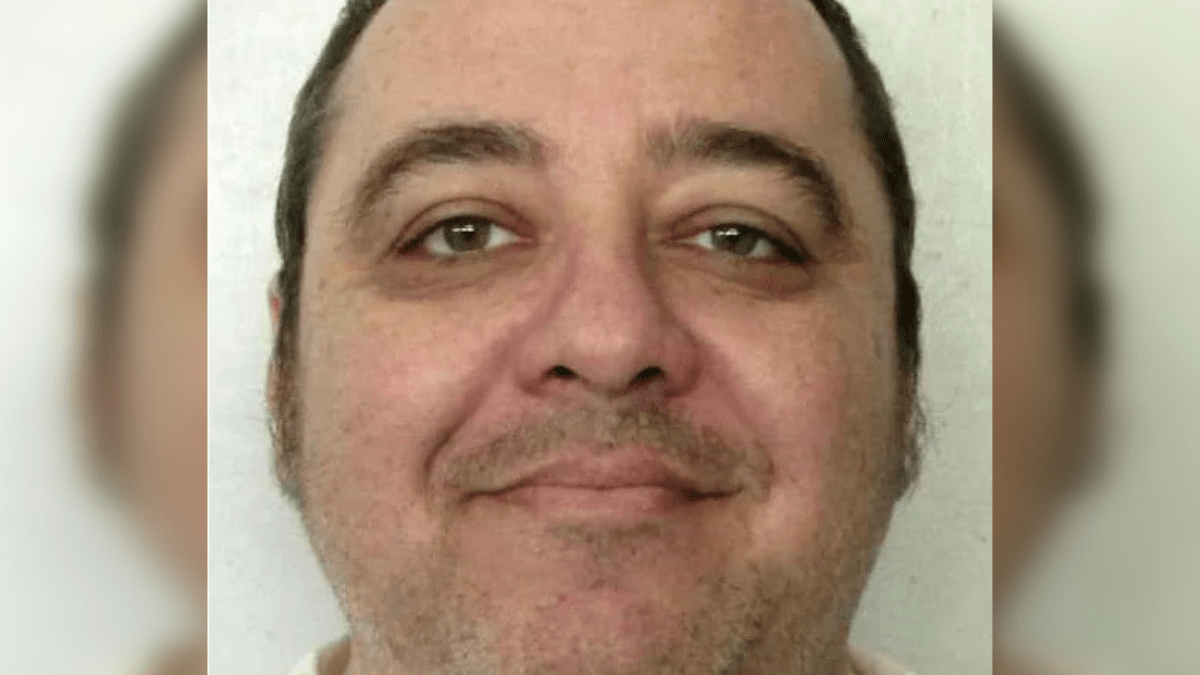Alabama debuted the first nitrogen gas execution on Jan. 25, 2024, drawing strong criticisms from global activists who vehemently opposed it and pointed at its senseless inhumanity. Kenneth Eugene Smith — the inaugural death-row inmate to undergo this method — ultimately succumbed at 8:25 pm after a harrowing 22-minute struggle for his life.
At just 22 years old, Smith gained notoriety as one of the hired hands in the murder-for-hire plot involving Elizabeth Sennet, who was discovered lifeless in her Colbert County home on March 18, 1988. The orchestrator behind this heinous act was none other than her husband, pastor Charles Sennet Sr., who shelled out $1,000 to eliminate his wife, aiming to cash in on her life insurance and settle his debts. Investigators swiftly unraveled the staged home burglary, tying Charles Sennet Sr. to the murder and prompting his suicide.
Ronnie May, chief investigator for Colbert County Sheriff’s Office at the time, vividly recounted the chilling scene he stumbled upon. Sennet had been brutally stabbed and beaten with a fireplace tool, her autopsy later revealed the extent of her wounds on her chest and neck.
“She fought it, and she fought hard. It was horrific to me. You feel for the victim and what they went through — the horror she endured in her last minutes,” investigator May shared with AL.com.
Trial outcome and first failed execution
In the aftermath of his 1989 trial being overturned on appeal, a significant shift occurred in Smith’s 1996 retrial. Despite an 11-1 jury recommending a life sentence, Judge M. Pride Tompkins overruled, opting for the death penalty. At the time, Alabama was one of the three states allowing judges to veto the jury decisions on life and death in capital cases — a practice that was later abolished in 2017. Smith’s accomplice, John Forrest Parker, shared a similar fate, meeting his execution in 2010.
Paradoxically, this wasn’t Smith’s first brush with the gallows. His initial close call occurred on Nov. 17, 2022, when his execution had to be deferred after enduring hours strapped in, as staff grappled to locate a vein for the administration of lethal drugs. Cheating death once couldn’t shield him from what came next, as he became the trial experiment for nitrogen gas in state-sanctioned executions.
New method on the horizon for U.S. death sentences
In nitrogen gas executions, a mask is placed over the prisoner’s face, and pure nitrogen gas is injected, inducing nitrogen hypoxia — a lethal deprivation of oxygen to the brain. This uncharted method is emerging on the scene just as states seek execution alternatives due to the growing challenge of sourcing traditional lethal drugs.
Not everyone is on board with this. U.N. Human Rights Council experts were among the fiercest critics, voicing concerns about potential violations of the prohibition against torture and cruel punishment in recent statements. Smith’s legal team joined the chorus, accusing the court of endorsing an execution that trampled on constitutional protections against cruelty.
In a call to The Guardian from his cell, Smith himself expressed unease about the impending ordeal. He wasn’t ready to go and described his dread, envisioning the unsettling prospect of vomiting in the nitrogen-injected mask. “Alabama has selected him as its ‘guinea pig’ to test a method of execution never attempted before. The world is watching,” Justice Sonia Sotomayor wrote in her dissent.
In the face of Alabama’s court filings claiming that depriving oxygen would swiftly lead to death, the execution unfolded over more than 20 minutes. Attorney General Steve Marshall touted it as “an effective and humane method of execution,” but reporters on the scene, like Marta Roney from Montgomery Advertiser, painted a contrasting picture. Roney detailed an inhumane spectacle, with Smith convulsing, violently shaking, and his eyes rolling back for several agonizing minutes.
Reverend Jeff Hood, Smith’s spiritual guide, stood by him in the death chamber and shared with reporters that far from a swift demise, Smith battled for his life for several intense minutes. In his parting words, Smith expressed:
“Tonight Alabama causes humanity to take a step backwards. I’m leaving with love, peace and light.”
His last words against the looming normalization of the nitrogen protocol offer a chilling glimpse into a grim new chapter in U.S. executions.
